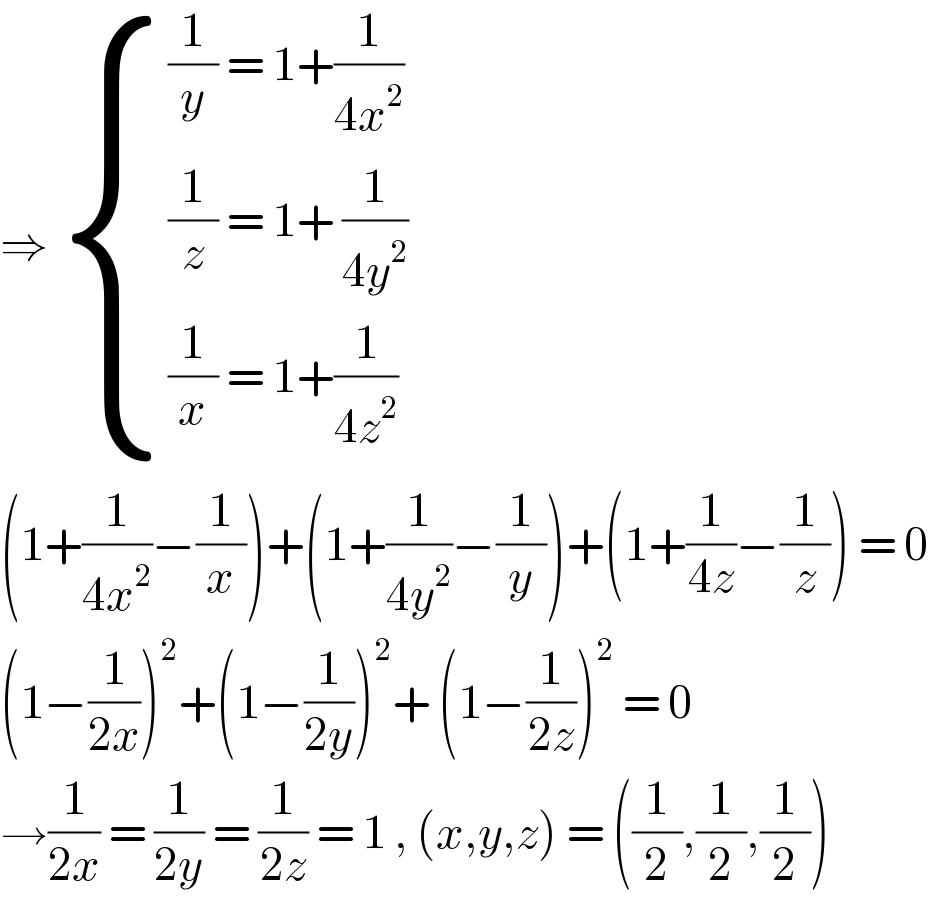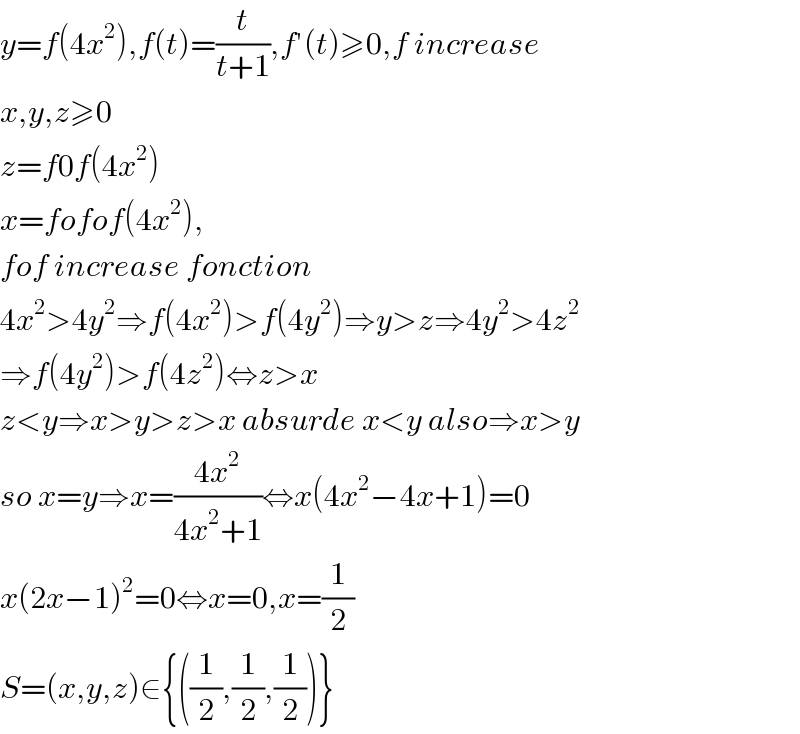
Question and Answers Forum
Question Number 120110 by benjo_mathlover last updated on 29/Oct/20

Answered by bemath last updated on 29/Oct/20

Answered by mindispower last updated on 29/Oct/20

| ||
Question and Answers Forum | ||
Question Number 120110 by benjo_mathlover last updated on 29/Oct/20 | ||
 | ||
Answered by bemath last updated on 29/Oct/20 | ||
 | ||
| ||
Answered by mindispower last updated on 29/Oct/20 | ||
 | ||
| ||